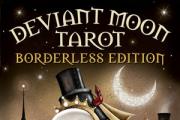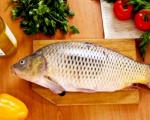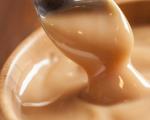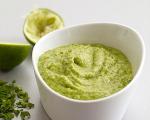Now let's take a closer look at what medications to take with you on vacation, be it the sea or the mountains.
What should be in the first aid kit
1. Remedies for motion sickness.
Needed by those who are familiar with nausea in transport. It should be noted that these drugs often have a pronounced sedative effect.
2. Sedatives.
They will help you endure the hardships of the journey more easily, and they are also indispensable for sleep disorders associated with time zone changes. Worth giving preference herbal remedies, available without a doctor's prescription.
3. Antihistamines.
During travel, contact with various allergens is possible (pollen, poisons of stinging insects, spices, Exotic fruits etc.). For treatment allergic manifestations are used antihistamines. However, some of them cause drowsiness. Therefore, when choosing tablet forms of allergy medications, it is best to choose new generation drugs that do not penetrate the blood-brain barrier. A popular remedy is suprastin.
4. Antipyretics.
During the holiday period, the body's resistance to infection decreases sharply. Especially the immune system suffers when changing climate zones. You should definitely put a thermometer in your first aid kit (preferably an electronic one, not a mercury one) and medications, which have an antipyretic effect. It is advisable to use products containing paracetamol (aspirin is not recommended for use in acute respiratory viral infections, especially in children under 15 years of age).
This could be paracetamol - 3 packs. Used as an antipyretic, analgesic, anti-inflammatory, adults at a temperature of 1 tablet every 6 hours, break for at least 4 hours, children 0.2 g tablets (children at half dose);
Efferalgan syrup (paracetamol, Panadol) - 1 bottle, used as an antipyretic, analgesic, anti-inflammatory agent, dosage with a measuring spoon according to age.
5. Cold remedies.
ARVI symptoms such as elevated temperature body, weakness, nasal congestion, hot drinks are great for relieving, so you should take several packets complex drugs for colds in the form of soluble powders. You can’t do without nasal drops (spray). It is best to take prolonged forms of drugs that last up to 12 hours (1 bottle for children, 1 bottle for adults, used according to the instructions in accordance with age).
If you are prone to ear diseases, you can take antiseptic and anti-inflammatory medications with you. ear drops(otinum - 1 bottle, ear drops, instilled into the external ear canal 3-4 drops 3-4 times a day).
For conjunctivitis, it would be better to use eye drops (albucid - 1 bottle, eye drops, 1 drop in each eye 3 times a day).
6. Cough and sore throat remedies.
Expectorants can help with a dry cough. Codelac – 1 bottle, dry cough syrup, used carefully, for children over 2 years old, ½ teaspoon 2 times a day, for adults, 1 teaspoon 2 times a day. Dry cough medicine for children - 10 sachets, used for coughs in children, dilute 1 sachet according to instructions - 1 dose per appointment.
You can use antiseptics for a sore throat local action- in the shape of sucking lozenges or throat aerosol. You can take it with you and sulfa drug, which has a pronounced anti-inflammatory effect in diseases of the ENT organs, lungs, kidneys and gastrointestinal tract. However, medications in this group are usually prescribed by a doctor.
7. Painkillers.
A tourist's first aid kit must contain painkillers and antispasmodics. Ketorol – 1 package, painkiller, adults 1 tablet for pain 3 times a day.
Cerucal – 1 package, used for vomiting, but carefully, adults 1 tablet 2-3 times a day, children ¼ tablet 2 times a day.
Papaverine – 2 packs, used to relieve spasms ( high blood pressure, pain caused by spasms of smooth muscles), adults 1 tablet - 3 times a day, children ¼ tablet 2 times a day, instead of papaverine you can take No-shpu - 2 packs.
8. Drugs for the treatment and prevention of gastrointestinal diseases.
Often encountered when traveling various disorders Gastrointestinal tract. To avoid stomach troubles, put sorbents in your first aid kit in advance. Activated carbon – 3 packs, used at the rate of 1 tablet per 10 kg of body weight 3 times a day. Smecta – 8 sachets, use for adults 1 sachet 3 times a day, children 1 sachet per day.
Antidiarrheals. Regidron – 6-8 sachets, preparation of the solution depends on the dosage indicated on the sachet, 1 liter sachet. or 0.5 l. liquids, often taken in small sips (a sip every 5-10 minutes) for diarrhea, vomiting, and dehydration. Furazolidone – 4 packs of 10 tablets, used for diarrhea and genitourinary infections, children ¼ tablet 3 times a day after meals, adults 1 tablet 3-4 times a day after meals. Baktisubtil - 1 package, used for diarrhea, children 1 capsule - 1 time a day before meals, adults 1 capsule 2-3 times a day before meals. Mezim-Forte - used for digestive problems, adults 1 tablet 3 times a day, children ¼ tablet 2 times a day). Probiotics - substances that promote recovery and growth normal microflora intestines.
When eaten fatty foods Digestive problems may also arise, here they will come to your aid enzyme preparations. If the cause of diarrhea is the ingestion of poor quality food or water, then you can take antibacterial drug- Enterofuril.
But in many cases the problem is acute intestinal infections The problem is that sometimes it is not possible to wash your hands thoroughly before eating. Therefore, put sanitary napkins for hand cleaning in your first aid kit (1 large package for 1 day on the road) or some alcohol-containing lotion, as well as ammonia– 1 bottle (used for loss of consciousness).
9. Antiseptic and dressing materials.
A tourist's first aid kit must contain dressings (cotton wool - 1 pack, sterile bandages and napkins - 2 packs), iodine or brilliant green (preferably in the form of a pencil - 1 pc.), adhesive plaster (in a reel and a “disposable” one in a set).
Additional components of a tourist first aid kit
For tourists who pay special attention to their health, it would be useful to take with them additional medical supplies:
1. Permanent medications for chronic patients. In addition to emergency aid, patients suffering chronic diseases, must take with them a supply of those medications that they are forced to constantly take.
2. Sunscreen and anti-burn products. For travelers going to hot and sunny countries, such as Thailand, along with the basic set of medications, it is necessary to include in the first aid kit products that have a sunscreen effect. If, after all, the southern sun burns the skin, then an anti-burn cream will help cope with painful redness (Boro-Care cream - a universal cream, antiseptic, used for sunburn, insect bites, for treating wounds, to relieve skin irritations).
3. Antifungal drugs
. While relaxing on the beach or in a hotel, you can become infected with various fungal diseases that affect the skin of your feet. Therefore, put it in the first aid kit antifungal agent for external use, which has healing effect and prevents the infection from spreading.
4. Personal hygiene products and antiseptics for women. Women should take antiseptic candles with them, because when swimming in open waters, you can get some vaginal infection. And be sure to put personal hygiene products in the first aid kit - pads or tampons. With sudden climate change critical days may start at absolutely the wrong time.
5. Contraceptives and anti-infectives. When going on vacation, you should also think about sexually transmitted diseases, so it would be absolutely a good idea to put condoms in your first aid kit, antiseptic solution(chlorhexidine), and for women, also take contraceptives in suppositories or tablets.
Extreme recreation includes alpine skiing, river rafting, mountaineering, hiking in the jungle with overnight stays in tents. This type of recreation is characterized by an increased risk of injury. Therefore, a standard first aid kit should be supplemented with a large amount of dressing material, antiseptics for treating wounds (tincture of iodine, brilliant green, hydrogen peroxide solution). It is imperative to include a hemostatic tourniquet. To treat bruises and joint sprains, you should take painkillers and anti-inflammatory ointments, as well as elastic bandages.
At rest in the forest There is a danger of being bitten by ticks and mosquitoes. Good repellent will save you from bloodsuckers, and the mosquito net will protect you from being bitten while you sleep. Observe the method of application and frequency of treatment with repellent.
Perhaps an antiseptic will come in handy during the hike. water disinfection. If there are no suitable tablets for “cold sterilization” of water, then you can use a filter made of cotton wool and crushed tablets activated carbon. A faint pink solution of potassium permanganate also has antiseptic properties.
Protect skin Hand cream will help against chapping and flaking, but it is better to take with you “Children’s Cream”, which has a neutral pH, good softening and light wound-healing effect.
As you can see, a traveler's first aid kit is quite impressive. Of course, you can refuse some of the above medications, protective equipment and hygiene for reasons of economy and independently determine what to take in a traveler’s first aid kit, but you shouldn’t neglect your health and comfort either. Maintain a balance and take a sensible approach to the formation of a tourist’s first aid kit, and then on vacation you will feel more confident and protected.
And if it did happen that you frivolously ignored all the precautions and simply lightened your luggage, ridding it of a heavy first aid kit, then in the event of an unforeseen situation in the same Thailand, you can only rely on the guide accompanying you and Lady Luck . Explain in Thai pharmacy the easiest way is in two ways - using gestures, visually depicting what and where it hurts you or a friend, or using standard set English words, which should be enough for you to get the coveted medicine.
And the best thing is to take care of yourself in advance and not get sick!
I described in sufficient detail our experience with Olya visiting medical institutions in Pattaya and even talked a little about his own attempts at self-medication. By the way, it’s better not to do it. All that remains is to tell you what medicines we took to Thailand ourselves and what really came in handy there.
It is necessary to make a reservation that the medications that you are supposed to take with you represent only insurance for extreme case. In case you are on the road or cannot immediately go to the hospital. In all other cases, I strongly recommend contacting medical institutions.
Thailand has enough high level medicine and in all major cities There are normal clinics. Personally, we ourselves tried to apply both with and without insurance, both times everything went fine and the prices for treatment were quite reasonable. Separately, I would like to note that when you go to the hospital, you are not only given a diagnosis and given a prescription, but also the prescription medications themselves. So there is no need to stock up on everything possible in advance.
The basis of any first aid kit that you pack for Asia is always advised to make antihistamines (anti-allergenic), painkillers and antipyretics, as well as various enterosorbents and medications for intestinal disorders.
From the first category of drugs, antihistamines (anti-allergenic), we took classic Suprastin (active substance And international name Chloropyramine) tablets and Fenistil gel (Dimetindene). Only Fenistil was useful; Olya used it a couple of times after insect bites. Otherwise it wasn’t useful, but it’s better to have in your first aid kit.
From the second category of drugs, painkillers and antipyretics, we took the usual Analgin And Citramon plus Paracetamol. They took it mainly for mild pain, so as not to have to run to the pharmacy with a headache. WITH severe pain It’s already a direct road to the hospital. I took it a couple of times for the same headaches, but here everything is standard.
More interesting are the drugs of the third group - enterosorbents and other drugs for intestinal disorders. We took these medicines with us to Thailand Activated carbon, Smecta And Imodium. More interesting, but no more applicable. Many people complain of an upset stomach, simply called diarrhea, in Thailand. It’s hard to say, from the first days we ate standard Thai dishes, as expats say “spicy”, and nothing remarkable happened. For example, I don’t really mind spicy food, but after Thailand I became addicted to hot pepper. Maybe it happened this way, or maybe it’s not the food that affects the stomach as much as a large number of alcohol?
What medications should I take to Thailand in addition to this? It’s clear what your specialized medications are, especially if you suffer from chronic diseases. Here everyone knows best for themselves. The same goes for children and children's medications of choice.
We also found it useful plasters, earplugs for the ears, sanitary gel for hands, throat tablets, “before and after” tanning products (I especially recommend “before”). I've also used it a couple of times iodine, managed to unseat his hand while climbing the buoys.
In principle, everything described above is no problem to find in pharmacies in Thailand. In Pattaya you can find almost all the necessary medicines. However, you need to understand that many specific medications will be there under different names. Different drug brands are presented differently in different countries and regions, some have different names depending on the country. So the most simple method will take with you a package of medicine and show it to the pharmacist. As a last resort, you can use the website http://www.mims.com, where you can find an analogue of the medicine yourself.
As a conclusion, I will repeat once again, you are going to a fairly civilized country with normally developed medicine, do not self-medicate, especially when it is not necessary. Always, when I read this kind of advice myself, I think: “Let’s get specific, what pills to take and for what.” But believe me, this is not empty advice, but personal experience. Do not be ill !
What medications should I take with me to Thailand?
Pharmacies in Thailand are in complete order - the range of medications is very wide and prescriptions are practically not needed to purchase them. If you have insurance, everything necessary medications You will be given one after being examined by a doctor at the hospital. But to avoid such a situation, take a first aid kit with you on your trip.
First aid kit for travel
What to put in your first aid kit when going to Thailand?
Put pain relievers in your first aid kit, preferably those that you are used to. Don't neglect antipyretics, for example, take the most common paracetamol. You don’t need to take medicines for coughs and sore throats - such medicines are abundant in all countries South-East Asia.
It wouldn't hurt to take it with you, either. antihistamines who will come to the rescue after bites various insects, and also after meeting sea jellyfish. Therefore, put Suprastin or Loratadine in your travel medicine cabinet.
Will not be superfluous remedies for upset stomach. Traveling to a foreign country with unfamiliar cuisine can have consequences, so having activated carbon, Lopedium and Phosphalugel in your first aid kit will be quite justified.
The list of required medications should also include a patch for sore feet and minor cuts or scrapes.
Remember! The local climate has a bad effect on the healing of insect bites and any minor wounds!
Availability of trauma kit Necessarily! For the simple reason that local Thai pharmacies will only offer you unfamiliar drugs. Therefore, you should definitely take iodine, antiseptic ointments and products with you. If you still forgot to take iodine with you, then you can buy Betadine, an analogue of our iodine, at local pharmacies. Today, almost all pharmacies in the city have leaflets with transcripts, where the names of the drugs are written in Russian.
So, we can say that the main supply of medicines for the trip has been collected; all that remains is to add some details that may be useful. For example, historically in Thailand women do not use tampons. Therefore, those women who use these personal hygiene products you need to take them with you.
Resorts in Thailand are very close to the equator and Sun rays here it's straight. Sunscreen is almost a necessity here. Also be sure to have mosquito repellent with you. In Thailand, these insects are as much a paradise on earth as they are for humans. Mosquito repellents are also widely available in local pharmacies and their prices are similar to those of domestic products.
Remember! Medicines you import with a prescription must have proof from your doctor, otherwise your medicines will be seized by customs.
Also, do not forget that it is prohibited to import medicines that contain ephedrine and its derivatives into Thailand. These substances were considered prohibited even in ancient Siam, and for their possession you can be prosecuted.
What medications do you take with you on a trip?
Let's start with medications.
First aid kit in Thailand: what to take
In general, we brought with us to Thailand a bunch of all kinds of medicines for all occasions, but I want to talk about those that 100% should be in your travel first aid kit and which are very to a large extent probabilities will be useful to you on vacation, even if you come for only 10 days.
For adults:
- Polysorb(powder for dissolution in water). The most popular remedy on vacation, especially for stomachs unaccustomed to Thai food. Excellent for poisoning, diarrhea and food allergies. It is also suitable for children, the main thing is to follow the dosage. Take a jar of at least 25 g, it is used up quickly.
- Painkillers: MIG 400 or Bral. There are many more similar drugs, everyone can choose for themselves the most suitable remedy. But you definitely need to take painkillers. Unexpected pain can strike at any moment, and worst of all, if it happens on an airplane (you will have to endure it for a long time). And during the flight, exacerbations occur most often. You might get a toothache, an ear ache, or, God forbid, a kidney stone. So these tablets should always be on hand.
- Rinzasip. It couldn't be easier to catch a cold in Thailand. From hot to cold - from cold to hot. In general, there is nothing special to explain here. Cold powder is a must have!
- Smecta (powder). It's also very good remedy for diarrhea, heartburn, bloating. You can’t go on vacation without it, especially if you have “all inclusive” :).
What to take for your child:
- Febrifuge(For example, baby syrup Nurofen). In Thailand, such a product can be bought at any pharmacy or 7Eleven store (called Sara), and from Russia it makes sense to bring it only to be on the safe side on the plane, as I already said, during a long flight you need to be prepared for anything.
- Baneocin(antibacterial powder). A very good remedy for various cuts, abrasions, scratches, etc. Just sprinkle it on the wound and cover it with a band-aid. Since our child is very active, I always have this powder in my bag wherever we go.
- Zyrtec drops (anti-allergic drug). Also very the right remedy for a child. In a foreign country, allergies can manifest themselves to anything, especially to food and exotic fruits. So we definitely take it!
- Tantum Verde(Spray for the throat). Suitable for both children and adults. A very good remedy that relieves sore throat when all kinds of inflammatory diseases oral cavity.
- Vasoconstrictor drops for the nose (for example, Nazol). They should also be in the first aid kit in case of all sorts of colds. You can also drop them 30 minutes before the flight to prevent your child’s ears from getting stuffy.
- Thermometer, plasters.
This is our mandatory list of medications that you need to take with you on a trip. We can also advise you to buy sunscreen in Russia before your trip. In Thailand they are much more expensive, for example, baby cream costs 500 baht.

What things to take?
I will not now give advice on what clothes to take to Thailand, because if I were going on a short vacation of a week to two, I would limit myself to a pair of swimsuits, shorts, T-shirts, T-shirts, shoes, I would also take a few dresses, a couple of handbags, glasses, a hat is a must :)

I’d rather tell you about what you will really need at sea, and what you can now buy at a very big discount and much cheaper than in Thailand. We are currently preparing for a trip to Samui and are waiting for November 11th to purchase all this.
Here is my list of necessary things at sea:
- . The most necessary thing, especially on the islands! In Pattaya this costs 1900 baht. You can already buy it on Aliexpress for three times cheaper, and tomorrow it will cost only 857 rubles!

- . An indispensable thing for going to the water park! Tomorrow we buy for 560 rubles.
Thailand is an exotic country that attracts tourists with its beautiful beaches, warm climate, Asian exoticism and affordable prices. Before traveling to the land of smiles, it is worth remembering that abrupt change climate and unusual cuisine can cause various ailments. Of course, in most cases such troubles do not arise, and tourists quickly adapt to local conditions. However, it is better to play it safe and pack a first aid kit for all occasions in advance for your trip.
For adults
Traveling to a distant, unfamiliar country is a rather serious undertaking. Therefore, it does not hurt to take with you the basic medications needed to provide first aid in case of illness or injury. Of course, in Thailand everything necessary medications are sold in local pharmacies, but even with knowledge of English it is quite difficult to immediately understand unfamiliar packaging and names various drugs. Everyone decides for themselves how much medicine to take with them, but the minimum set must be available.

During the tourist season in Thailand, the sun generously gives its warmth. However, sometimes there is such heat that you will never find in Russia even in mid-July. Therefore, sunscreen is a must in your luggage. Any local 7-11 or Family Mart also has a wide variety of creams available. Before you buy one of these, you need to pay attention to the letters "SPF" and standing nearby numbers are the so-called sun protection factor. The higher the number, the stronger the cream's effect. SPF 50 is optimal for Thailand.
For outdoor activities, you will need to take antiseptics such as iodine, brilliant green or hydrogen peroxide. Bandages and plasters will also come in handy while on vacation. Special attention It is worth paying attention to repellents and products that relieve itching after an insect bite. As a rule, attacks by Thai mosquitoes and midges are quite painful and can cause large tumors. In Thailand itself a lot is sold good ointments that help after bites. A salesperson at a pharmacy just needs to say or write “insects”, and he will immediately offer a variety of bottles with products reminiscent of the famous “ Gold Star"from Vietnam.
After bites or heat, the temperature may rise, and here good old paracetamol will come to the rescue.
Girls planning a vacation in Thailand would do well to take tampons with them, since they may not be available in small shops and pharmacies near the hotel. Typically, tampons are sold in Thailand in large supermarkets such as Big C, Tesco Lotus, and Tops Market.
If you are taking sleeping pills or antidepressants when entering Thailand, you cannot do without a prescription and an extract from your medical history. It is advisable that all this be on English language or at least a translation was attached. And, of course, you cannot take drugs that are prohibited by law.
For children

If adults usually ignore vaccination before traveling to Thailand, then a child will definitely need to get it. Thus, a few months before the trip you need to go to pediatrician and do necessary vaccinations. Experts recommend getting vaccinated against the following diseases before traveling:
- Diphtheria
- Tetanus
- Typhoid fever
- Hepatitis A
- Hepatitis B
- Japanese encephalitis
- Rabies
If anything from this list is already included in your child’s routine vaccinations, then additional vaccination not required.
Like adults, children will need antipyretic drugs and painkillers, medications to normalize the activity of the gastrointestinal tract. However, they should be in smaller dosages, according to the instructions.
Medicines for children are often available in the form of various syrups. Therefore, when boarding a plane, do not forget that you can take bottles of no more than 100 milliliters in volume on board.
Repellents should not be used for children under 3 years of age. After three years, you should buy insect repellents that are specially formulated for child's body: Similar adult medications may be toxic to a child.
Sunscreen for a baby should also be separate, with a note that the product is intended specifically for children. In Thailand, similar creams are available for sale in almost any minimarket. You should choose packaging that says “for kids.”





















